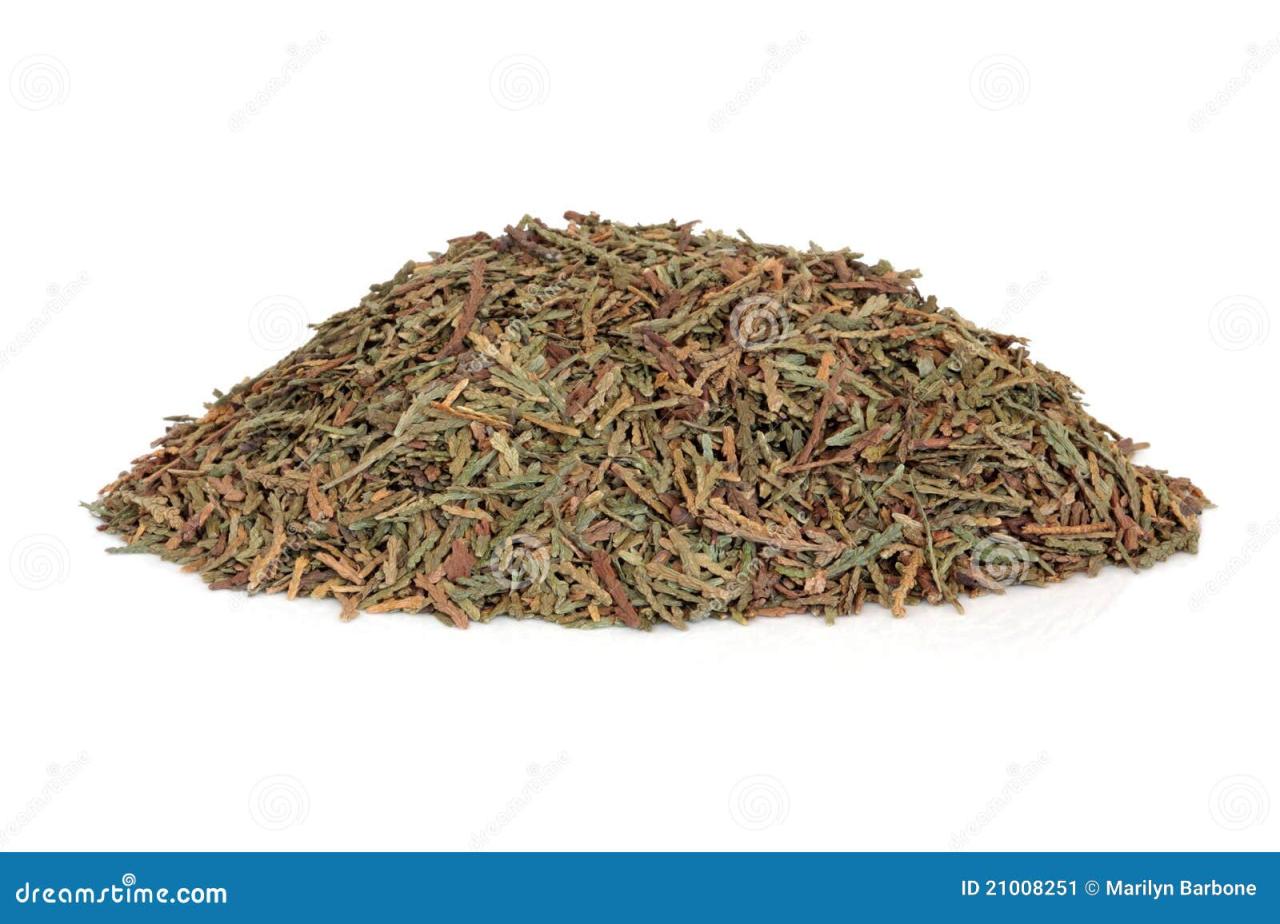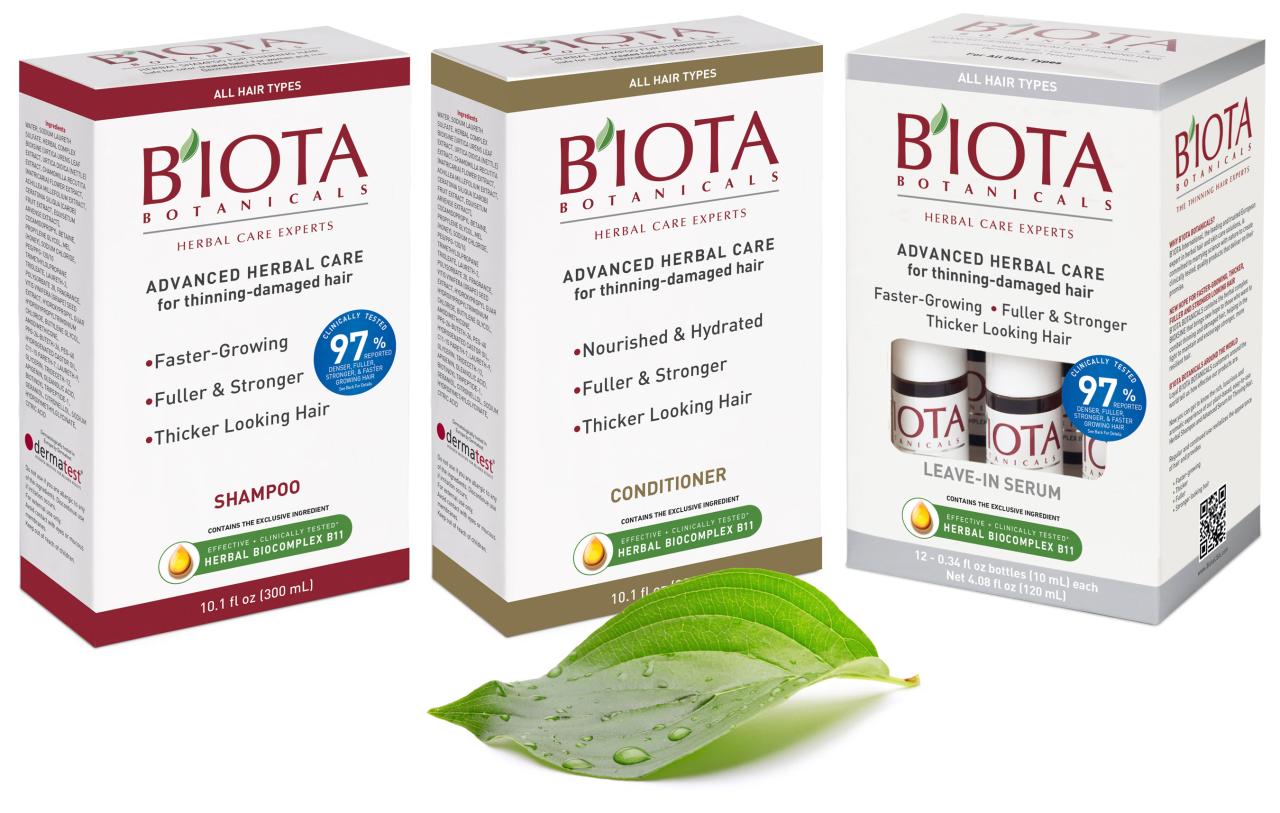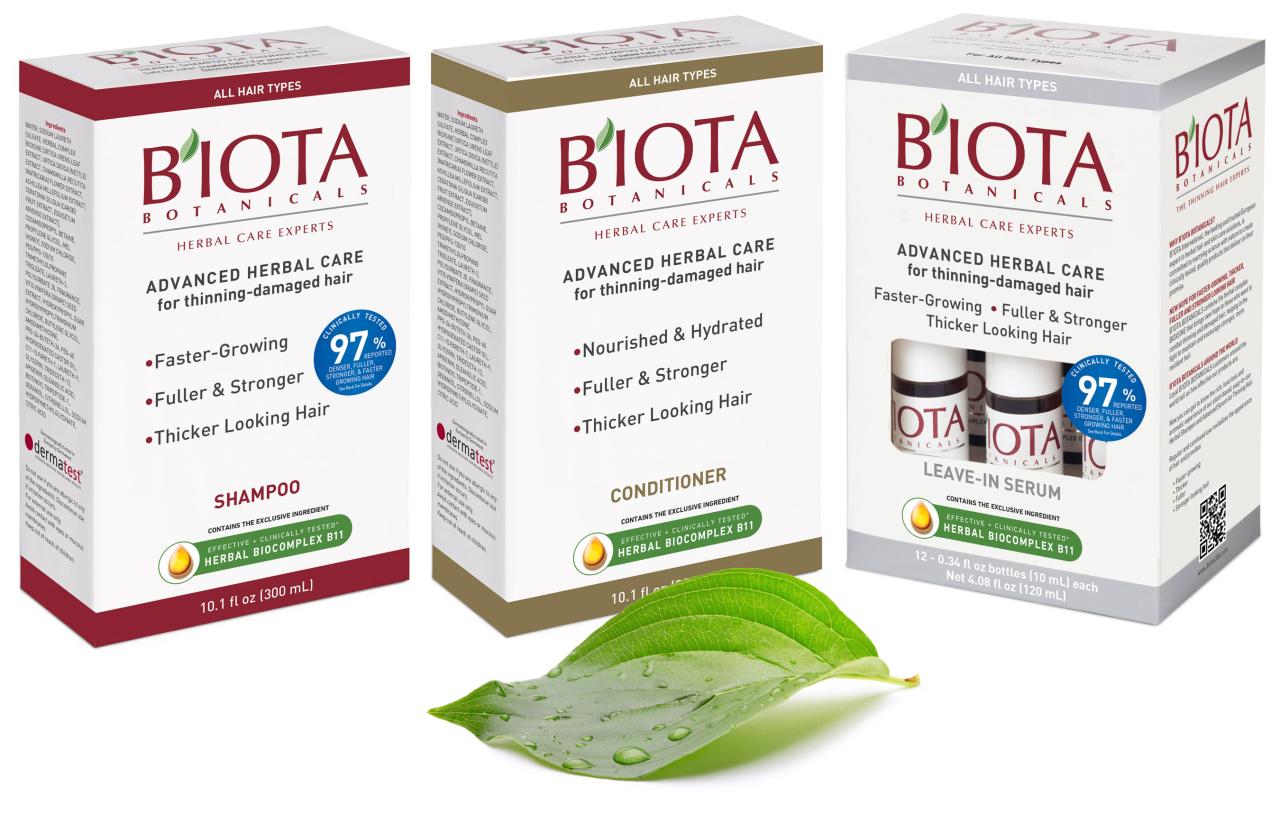The Science Behind Biota Herb: Why It Works delves into the fascinating world of this ancient plant, exploring its traditional uses, scientific backing, and potential health benefits. Biota herb, also known as thuja, has a rich history in various cultures, where it has been employed for its medicinal properties.
But what makes this herb so effective? This article unveils the science behind Biota herb, revealing its active compounds, mechanisms of action, and potential applications in modern medicine.
From its botanical origins to its diverse range of potential health benefits, we will uncover the secrets of this remarkable plant. Join us as we explore the scientific evidence supporting Biota herb’s effectiveness, addressing its safety profile, and discussing its role in contemporary healthcare.
What is Biota Herb?
Biota herb, also known as thuja, is a popular herbal remedy that has been used for centuries in traditional medicine. It is derived from the leaves and twigs of the
Thuja occidentalis* tree, a species native to North America.
Botanical Origins
Biota herb belongs to the
- Cupressaceae* family, which includes other coniferous trees like cedar and cypress.
- Thuja occidentalis*, commonly known as the eastern white cedar or arborvitae, is a medium-sized evergreen tree that can grow up to 60 feet tall. Its leaves are small, scale-like, and arranged in opposite pairs, giving the branches a flattened appearance.
The tree produces small, cone-shaped fruits that mature in the fall.
Traditional Uses
Biota herb has a long history of medicinal use in various cultures. Native American tribes used it to treat a wide range of ailments, including respiratory infections, skin conditions, and digestive problems. In traditional Chinese medicine, biota herb is known as
bai zhu* and is believed to have warming, anti-inflammatory, and immune-boosting properties.
Physical Characteristics
Biota herb has a distinctive aroma that is often described as pungent and slightly resinous. The leaves are a deep green color and have a slightly bitter taste. The tree’s bark is reddish-brown and fibrous, and its wood is durable and resistant to decay.
Active Compounds and Mechanisms of Action

Biota Herb, scientifically known as _Thuja occidentalis_, contains a variety of active compounds that contribute to its medicinal properties. These compounds have been the subject of extensive scientific research, revealing their pharmacological properties and mechanisms of action. This section delves into the primary active compounds found in Biota Herb and explores the scientific evidence supporting their therapeutic effects.
Active Compounds in Biota Herb
Biota Herb is rich in bioactive compounds, including essential oils, flavonoids, and tannins. The primary active compounds responsible for its medicinal properties include:
- Thujone:A monoterpene ketone, thujone is the most abundant compound in Biota Herb essential oil. It has been associated with a range of pharmacological effects, including anti-inflammatory, antimicrobial, and anticonvulsant activities.
- Pinene:A monoterpene hydrocarbon, pinene is another major component of Biota Herb essential oil. Research suggests that pinene exhibits analgesic, anti-inflammatory, and antioxidant properties.
- Sabinene:A monoterpene hydrocarbon, sabinene has been shown to possess antimicrobial, anti-inflammatory, and antifungal properties.
- β-Caryophyllene:A sesquiterpene hydrocarbon, β-caryophyllene has demonstrated anti-inflammatory, analgesic, and neuroprotective effects.
- Flavonoids:Biota Herb contains various flavonoids, including quercetin, rutin, and kaempferol. Flavonoids are known for their antioxidant, anti-inflammatory, and anticancer properties.
- Tannins:Tannins are polyphenols found in Biota Herb. They possess astringent properties and have been implicated in anti-inflammatory, antimicrobial, and antiviral activities.
Mechanisms of Action, The Science Behind Biota Herb: Why It Works
The active compounds in Biota Herb exert their effects through various mechanisms of action, including:
- Anti-inflammatory Effects:Thujone, pinene, sabinene, and β-caryophyllene have been shown to inhibit the production of pro-inflammatory mediators, such as prostaglandins and cytokines, thereby reducing inflammation.
- Antimicrobial Activity:Thujone, pinene, sabinene, and tannins have demonstrated antimicrobial activity against a range of bacteria, fungi, and viruses. These compounds may disrupt microbial cell membranes or interfere with essential metabolic processes.
- Antioxidant Properties:Flavonoids and other phenolic compounds in Biota Herb act as antioxidants, scavenging free radicals and protecting cells from oxidative damage. This contributes to its potential benefits in preventing and treating various diseases.
- Neuroprotective Effects:β-caryophyllene has been shown to protect nerve cells from damage caused by oxidative stress and inflammation. It may also modulate neurotransmitter activity, contributing to its potential benefits in cognitive function.
- Analgesic Effects:Pinene and β-caryophyllene have demonstrated analgesic properties, reducing pain by inhibiting the production of pain signals in the nervous system.
Comparative Analysis of Modes of Action
The active compounds in Biota Herb exhibit distinct modes of action, contributing to its multifaceted therapeutic effects. While some compounds, like thujone and pinene, primarily target inflammatory pathways, others, such as β-caryophyllene, focus on neuroprotection. Flavonoids and tannins, on the other hand, act as antioxidants, protecting cells from damage.
This synergistic interaction of multiple compounds contributes to the broad spectrum of therapeutic effects associated with Biota Herb.
Potential Health Benefits
Biota Herb, also known as Thuja occidentalis, has been used in traditional medicine for centuries, with a wide range of potential health benefits attributed to its various active compounds. Scientific research is increasingly exploring the therapeutic properties of Biota Herb, shedding light on its potential mechanisms of action and supporting evidence for its efficacy in addressing specific health conditions.
Evidence-Based Research on Potential Health Benefits
Numerous studies have investigated the potential health benefits of Biota Herb, with promising findings in several areas. The table below summarizes some of the key potential benefits, their mechanisms of action, and supporting research.
Health Condition |
Benefits |
Mechanism of Action |
Supporting Research |
|---|---|---|---|
Anti-Inflammatory Effects |
May reduce inflammation and pain |
Contains compounds with anti-inflammatory properties, such as thujone and flavonoids. |
|
Antioxidant Properties |
May protect cells from damage caused by free radicals |
Rich in antioxidants, such as flavonoids and phenolic compounds, which can neutralize free radicals and prevent oxidative stress. |
|
Antimicrobial Activity |
May have antibacterial and antifungal properties |
Contains compounds with antimicrobial activity, such as thujone and other volatile oils. |
|
Respiratory Health Support |
May help relieve respiratory symptoms, such as congestion and cough |
Contains compounds with expectorant and bronchodilator properties, which can help clear airways and ease breathing. |
|
Traditional Uses of Biota Herb
Biota Herb has a long history of traditional use in various cultures for addressing a range of health concerns. The table below Artikels some of the traditional uses of Biota Herb.
Health Condition |
Traditional Use |
|---|---|
Respiratory Infections |
Used as an expectorant and decongestant to relieve cough, congestion, and bronchitis. |
Skin Conditions |
Applied topically to treat skin infections, wounds, and eczema. |
Urinary Tract Infections |
Used as a diuretic to promote urination and help flush out bacteria. |
Muscle and Joint Pain |
Used as an analgesic and anti-inflammatory to relieve pain and inflammation. |
Potential Benefits for Specific Populations
While Biota Herb has shown promise in various health applications, it is crucial to consider its potential effects on specific populations, such as pregnant women, children, and individuals with certain medical conditions.
Pregnant Women:Biota Herb is generally considered unsafe for pregnant women due to its potential to stimulate uterine contractions and potentially cause miscarriage. It is essential to avoid Biota Herb during pregnancy.
Children:Biota Herb is not recommended for children due to its potential toxicity. The safety and efficacy of Biota Herb in children have not been established.
Individuals with Medical Conditions:Individuals with certain medical conditions, such as liver disease, kidney disease, or epilepsy, should consult with a healthcare professional before using Biota Herb. Biota Herb may interact with certain medications and could potentially exacerbate existing health conditions.
Safety and Side Effects

Biota Herb, also known as Thuja occidentalis, has been used for centuries in traditional medicine, but it is important to understand its potential safety concerns and side effects. While it is generally considered safe when used appropriately, there are certain considerations and potential risks to be aware of.
Potential Side Effects and Adverse Reactions
Biota Herb can cause adverse reactions in some individuals, particularly when used in high doses or for extended periods. The most common side effects include:
- Skin irritation:Topical application of Biota Herb may cause skin irritation, redness, or itching.
- Allergic reactions:Some people may be allergic to Biota Herb, experiencing symptoms such as rash, hives, or difficulty breathing.
- Gastrointestinal upset:Ingesting Biota Herb can lead to nausea, vomiting, diarrhea, or stomach cramps.
- Neurological effects:In rare cases, Biota Herb may cause dizziness, headache, or confusion.
Interactions with Medications
Biota Herb may interact with certain medications, potentially affecting their efficacy or increasing the risk of side effects. It is crucial to inform your healthcare provider about all medications you are taking before using Biota Herb.
Pregnancy and Breastfeeding
The safety of Biota Herb during pregnancy and breastfeeding is not fully established. It is generally recommended to avoid using Biota Herb during these periods, as it may pose potential risks to the mother and fetus or infant.
Dosage and Administration
The appropriate dosage of Biota Herb varies depending on the intended use and individual factors. It is crucial to consult a healthcare professional to determine the safe and effective dosage for your specific needs.
Biota Herb should always be used under the guidance of a qualified healthcare professional.
Individuals with Pre-existing Medical Conditions
Individuals with certain medical conditions, such as liver disease, kidney disease, or autoimmune disorders, should exercise caution when using Biota Herb. It is essential to consult a healthcare professional before using Biota Herb if you have any pre-existing medical conditions.
Biota Herb in Modern Medicine: The Science Behind Biota Herb: Why It Works

Biota Herb, with its rich history of traditional use, is increasingly finding its place in modern medicine. Its diverse pharmacological properties, supported by scientific research, have led to its incorporation into various healthcare practices, including dietary supplements, herbal remedies, and even pharmaceutical formulations.
Understanding the science behind Biota Herb’s effectiveness requires exploring the plant’s natural growth patterns and its ability to thrive in various conditions. This same principle applies to propagating African Violets, a process that allows plant lovers to cultivate new life from existing plants.
Why Every Plant Lover Should Learn to Propagate African Violets is a great resource for learning about this process, and it highlights the importance of understanding plant growth cycles. By applying this knowledge, we can harness the power of nature to create vibrant, healthy plants, just like Biota Herb does for its users.
Biota Herb in Dietary Supplements
Dietary supplements are a popular avenue for individuals seeking to enhance their overall health and well-being. Biota Herb extracts are commonly included in these supplements, marketed for their potential benefits in promoting respiratory health, supporting immune function, and alleviating various inflammatory conditions.
- Many supplement manufacturers incorporate Biota Herb extracts into their formulations, targeting specific health concerns such as respiratory issues, immune deficiencies, and inflammatory conditions.
- These supplements are typically marketed as natural and holistic approaches to health maintenance, leveraging the traditional knowledge and modern scientific evidence surrounding Biota Herb.
- It’s important to note that while these supplements may offer potential benefits, they are not regulated in the same way as pharmaceuticals, and their efficacy and safety can vary depending on the manufacturer and quality control practices.
Biota Herb in Herbal Remedies
Traditional herbal remedies have long relied on the therapeutic properties of plants like Biota Herb. Modern herbalists and practitioners continue to utilize Biota Herb in various forms, including teas, tinctures, and topical preparations, for a wide range of health concerns.
- Biota Herb is often included in herbal remedies for respiratory ailments like coughs, bronchitis, and asthma, owing to its expectorant and anti-inflammatory properties.
- Traditional healers also use Biota Herb for its potential immune-boosting effects, promoting overall well-being and resistance to infections.
- In some cultures, Biota Herb is applied topically for skin conditions, including wounds, burns, and eczema, leveraging its antimicrobial and anti-inflammatory actions.
Biota Herb in Pharmaceutical Formulations
The potential of Biota Herb has caught the attention of pharmaceutical researchers, leading to ongoing efforts to develop and refine its application in modern medicine.
- Researchers are exploring the potential of Biota Herb’s active compounds in the development of new drugs for treating various conditions, including respiratory diseases, inflammatory disorders, and even certain types of cancer.
- Several pharmaceutical companies are actively engaged in clinical trials to evaluate the efficacy and safety of Biota Herb extracts in treating specific health conditions.
- One promising area of research involves the development of Biota Herb-based formulations for the treatment of chronic obstructive pulmonary disease (COPD), leveraging its bronchodilator and anti-inflammatory properties.
Ongoing Research and Development
The scientific community continues to investigate the potential of Biota Herb, conducting research on its chemical composition, pharmacological properties, and therapeutic applications.
- Researchers are using advanced techniques to identify and characterize the active compounds responsible for Biota Herb’s medicinal effects, providing a deeper understanding of its mechanisms of action.
- Preclinical studies in animal models are being conducted to evaluate the efficacy and safety of Biota Herb extracts in treating various conditions, paving the way for future human trials.
- Clinical trials are ongoing to assess the effectiveness and safety of Biota Herb-based treatments in human populations, providing valuable data for the development of evidence-based therapies.
Potential for Future Applications
The ongoing research into Biota Herb holds significant promise for future applications in medicine.
- As our understanding of its pharmacological properties deepens, researchers are exploring its potential in the treatment of a wider range of conditions, including autoimmune disorders, neurological diseases, and even certain types of cancer.
- The development of novel drug delivery systems, such as nanoparticles, could enhance the bioavailability and therapeutic efficacy of Biota Herb extracts, maximizing their potential benefits.
- Biota Herb’s natural origins and potential for minimal side effects make it a promising candidate for the development of safe and effective therapies for a variety of health concerns.
Conclusion
Biota herb, also known as _Thuja occidentalis_, has been traditionally used in various cultures for its medicinal properties. Research has revealed the presence of active compounds like thujone, flavonoids, and tannins, which contribute to its diverse pharmacological effects. These compounds exhibit antioxidant, antimicrobial, and anti-inflammatory activities, potentially supporting various health benefits.
Understanding the science behind Biota Herb, a natural plant growth stimulant, is crucial for maximizing its effectiveness. Biota Herb contains compounds that encourage root development and overall plant health, similar to how African Violets thrive when propagated from cuttings. Learn the techniques for successfully propagating African Violets from tiny cuttings in this comprehensive guide: How to Make African Violets Grow from Tiny Cuttings.
Applying the principles of plant propagation, like those outlined in this guide, will enhance your understanding of how Biota Herb works to promote healthy growth and thriving plants.
While studies have explored the potential of Biota herb in treating conditions like respiratory infections, skin ailments, and certain types of cancer, further research is crucial to confirm its efficacy and safety. It’s important to note that Biota herb can interact with certain medications and may cause adverse effects, especially when consumed in large quantities.
As with any herbal remedy, consulting a healthcare professional before using Biota herb is essential to ensure safe and effective use.
Biota Herb in Traditional and Modern Medicine
Biota herb has a long history of use in traditional medicine, particularly among indigenous cultures in North America. It has been employed for a wide range of ailments, including respiratory problems, skin conditions, and infections. In modern medicine, research is ongoing to explore the potential therapeutic applications of Biota herb, with a focus on its antimicrobial, antioxidant, and anti-inflammatory properties.
Potential Applications in Modern Medicine
- Antimicrobial Activity:Biota herb’s active compounds, such as thujone, have demonstrated antimicrobial activity against a range of bacteria and fungi. This property could potentially be explored for the development of new antimicrobial agents.
- Antioxidant Activity:The presence of flavonoids and other antioxidants in Biota herb has shown promise in protecting cells from oxidative stress.
This could potentially be beneficial in preventing chronic diseases associated with oxidative damage, such as cancer and heart disease.
- Anti-inflammatory Activity:Studies have indicated that Biota herb possesses anti-inflammatory properties, which could potentially be useful in managing inflammatory conditions like arthritis and asthma.
Wrap-Up
The scientific understanding of Biota herb continues to evolve, with ongoing research exploring its potential for various applications in medicine. While its traditional uses have been passed down through generations, modern science is providing a deeper understanding of its mechanisms of action and potential benefits.
As we learn more about this remarkable plant, its role in healthcare is likely to expand, offering a natural and effective approach to promoting well-being.
Commonly Asked Questions
Is Biota herb safe for everyone to use?
Biota herb is generally considered safe when used appropriately. However, it is essential to consult with a healthcare professional before using it, especially if you are pregnant, breastfeeding, taking medications, or have pre-existing medical conditions.
What are the potential side effects of Biota herb?
While Biota herb is generally safe, some potential side effects include allergic reactions, skin irritation, and digestive upset. It is crucial to start with a low dose and observe your body’s response.
Where can I find Biota herb supplements?
Biota herb supplements are available at many health food stores, online retailers, and some pharmacies. Look for reputable brands that provide quality assurance and third-party testing.
How much Biota herb should I take?
The appropriate dosage of Biota herb varies depending on your individual needs and health condition. Always consult with a healthcare professional to determine the right dosage for you.
